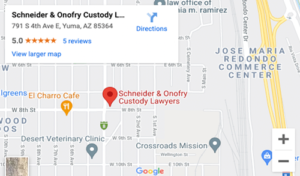Is That Personal Guaranty Enforceable?
At first glance, a guaranty’s language can seem ironclad. Uncompensated guarantors are often said to be “favorites of the law,” however, and the courts will strictly construe the guarantor’s undertaking. Moreover, various defenses to the enforcement of personal guaranties have evolved. Three of them are discussed below.
In order to bind a marital community under Arizona law, both spouses must join in the guaranty transaction. Additionally, there is a strong presumption under Arizona law that all property acquired during the marriage is community property. Accordingly, a creditor’s failure to have both spouses sign the guaranty may, as a practical matter, render the guaranty uncollectible.
Where, without the guarantor’s consent, the principal and the creditor modify their contract, the guarantor is discharged unless the modification is of a sort that can only be beneficial to the guarantor. Thus, creditors will want to get the guarantor’s written consent to any modification, regardless of to whom it may be viewed as being favorable.
A creditor owes a guarantor a duty of good faith and fair dealing. That includes the duty to disclose facts which increase the guarantor’s risk. Before this duty arises, the creditor must (i) have reason to believe that there are facts which materially increase the risk beyond that which the guarantor intends to assume and (ii) have reason to believe that those facts are unknown to the guarantor. The duty of disclosure continues throughout the parties’ relationship. Thus, a creditor who makes multiple extensions of credit, learns of the debtor’s insolvency, and has reason to believe the guarantor is unaware of it, has a duty to disclose the insolvency to the guarantor before making further advances. Its failure to do so can relieve the guarantor of liability on all further extensions of credit.
Creditors and guarantors can tend to overemphasize a guaranty’s formidable-sounding language. Thorough examination and review of the surrounding facts and circumstances, however, can lead to the discovery of one or more defenses and to the conclusion that liability is hardly certain.















